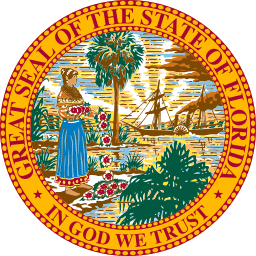Another Victory for Mexico in Guns Litigation
Still flush with success from its win at the First Circuit against U.S. gun manufacturers, Mexico has scored a new victory in federal court—this time, against U.S. gun dealers. In Estados Unidos Mexicanos v. Diamondback Shooting Sports, Inc., the U.S. District Court for the District of Arizona (Judge Rosemary Márquez) ruled that Mexico could move…
Continue ReadingTransnational Litigation Events at the 2024 ASIL Annual Meeting
On April 3-6, the American Society of International Law will hold its 118th Annual Meeting in Washington, D.C. There are several events that may be of particular interest to TLB readers. The International Law in Domestic Courts Interest Group (which Maggie and Bill co-chair) will hold a panel on Comparative Perspectives on Extraterritoriality on Thursday,…
Continue ReadingTLB Turns Two!
Two years ago today, we launched the Transnational Litigation Blog in hopes of building a community of practitioners, academics, and students similarly interested in these fascinating and important issues. We are grateful to all of our readers, and we are especially grateful to the 91 authors (in addition to the five of us) who have…
Continue ReadingFederal Court Enjoins New Jersey Statute Sanctioning Russia
Following Russia’s full-scale invasion of Ukraine in 2022, New Jersey enacted a statute (the “Russia Act”) prohibiting state agencies and political subdivisions from doing business with entities engaged in “prohibited activities” in Russia. In Kyocera Document Sols. Am., Inc. v. Div. of Admin., district court judge Robert H. Kirsch held that the statute is preempted…
Continue ReadingTransnational Corporate Accountability Through American Corporate Law
To those who view the Alien Tort Statute (ATS) as a beacon of American justice for foreign victims of corporate misconduct, the landscape looks bleak. In the latest ATS case decided in 2021, the Supreme Court held in Nestlé USA, Inc. v. Doe that plaintiffs, who were allegedly trafficked as children to engage in slave…
Continue ReadingThrowback Thursday: Banco Nacional de Cuba v. Sabbatino
Sixty years ago, on March 23, 1964, the U.S. Supreme Court handed down its decision in Banco Nacional de Cuba v. Sabbatino. By a vote of 8-1, the Court held that the act of state doctrine prevented U.S. courts from questioning the validity of Cuba’s expropriations of property owned by U.S. nationals, even if the…
Continue Reading11th Circuit Enjoins Enforcement of Florida Statute on Alien Ownership of Property
Foreign ownership of agricultural property in the United States has become more common over the past decades, leading to increased efforts to limit the practice. The U.S. Court of Appeals for the Eleventh Circuit is currently waiting to hear oral arguments in Shen v. Simpson a challenge to a Florida statute (SB 264) that restricts…
Continue ReadingHow To Find Personal Jurisdiction Over Foreign Website Operators
The Supreme Court’s recent personal jurisdiction decisions have raised more questions than they have answered. Meanwhile, the high Court has studiously avoided explaining how twentieth-century personal jurisdiction doctrine should map onto a twenty-first century world defined by Internet commerce, global supply chains, and cloud computing. The work of maintaining and updating a practical framework for…
Continue ReadingInternational Law and Insurance Litigation: Interpreting War Exclusions
Litigation over the scope of insurance coverage often follows major business losses. Disputes are generally governed by applicable contract law. In two noteworthy cases, the parties turned to international lawyers to help shed light on the terms of their agreement. Both cases arose from the denial of insurance claims for business losses incurred as a…
Continue ReadingFaux Forum Selection Clauses
In linguistics, a false friend (or faux ami) is a word from a different language that looks and sounds like a familiar word in English but, in fact, has a very different meaning. A classic example is the word “gift.” In English, the word means “present.” In German, the word means “poison.” These are not…
Continue Reading






